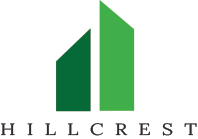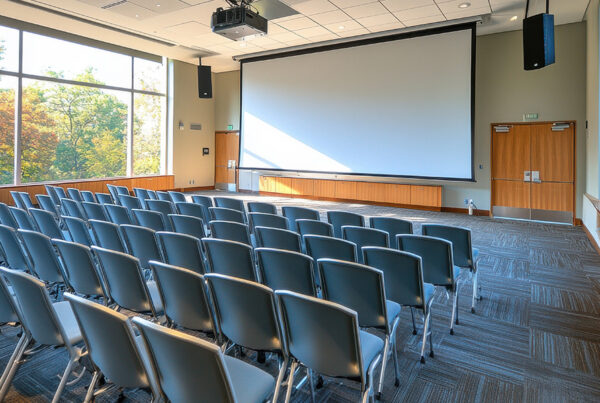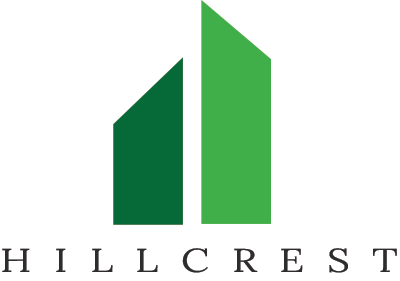Both board members and homeowners should familiarize themselves with the Open Meeting Act in HOA communities. This law, found in many states, allows homeowners to attend board meetings. An association’s governing documents may also contain similar provisions.
What is the Open Meeting Act in HOA?
The Open Meeting Act requires HOAs to keep their board meetings open to all homeowners. Although not a federal law, many states have versions of this law that apply to HOAs and condo communities.
Board members should check their state and local laws to see if there is an existing HOA Open Meeting Act. Additionally, some HOAs have bylaws and CC&Rs that require open board meetings.
In Illinois, 765 ILCS 160/1-40 mandates that all board meetings, except executive sessions, must be open to homeowners. Similar provisions also exist in California and Texas.
Should HOA Board Meetings be Open?
Many state laws require HOAs to keep their board meetings open to all members. In addition to this, the association’s governing documents may also have such a requirement.
In the absence of this requirement in state laws and bylaws, keeping board meetings open is still a good idea. Allowing homeowners to attend board meetings helps promote transparency and accountability.
Homeowners are more likely to trust their HOA leaders if invited to meetings. This gives them the opportunity to witness how association business and operations work. It also sheds some light on how the HOA board makes decisions.
Not only does this help gain the trust of homeowners, but it can also work to inspire them. Homeowners might be encouraged to participate more when they get a glimpse of behind the scenes. Some may even want to serve on the HOA board in the future.
Open vs Closed HOA Board Meetings
 What is the difference between an HOA open meeting and a closed one? Are HOAs even allowed to hold closed board meetings? These are common questions homeowners might have, but the answer is relatively simple.
What is the difference between an HOA open meeting and a closed one? Are HOAs even allowed to hold closed board meetings? These are common questions homeowners might have, but the answer is relatively simple.
An open meeting is a board meeting that all homeowners can attend. In contrast, a closed meeting is a board meeting that is not open to all homeowners. Otherwise known as an executive session, the board members only attend a closed board meeting.
Closed meetings exist for a purpose. In Illinois, 765 ILCS 160/1-40 states that an HOA can hold closed meetings under certain circumstances. These include discussions concerning litigation, contract or personnel matters, interviews, rule violations, delinquent dues, and consulting with legal counsel.
Other HOAs may have differing requirements for holding a closed meeting depending on state laws and their governing documents. Typically, executive sessions take place before or after an open board meeting.
Does the Open Meeting Act in HOA Apply to Committees?
Whether committee meetings must also be open to members depends on state laws and the HOA’s governing documents. Typically, a board-appointed committee with decision-making authority must have open meetings. Advisory committees, on the other hand, may not need to have open meetings.
Even without a legal requirement, it’s still a good idea for committees to hold open meetings unless confidential matters are being discussed. This is to boost transparency and gain the trust of residents.
How to Make an HOA Hold Open Board Meetings
Homeowners may get frustrated when their HOA fails to hold open board meetings. Fortunately, there are ways to resolve this issue.
First, it is important to check if there is an applicable Open Meeting Act in the HOA. State laws and the association’s governing documents will come into play here. If there is a legal requirement to hold open meetings, homeowners can proceed to the next step: to submit a written request.
Homeowners should send a formal letter or email to the HOA board or management company. This request should outline the relevant law or provision in the bylaws. It should also ask for proper notice, access, and minutes.
It also helps to gather support from other homeowners. To do this, members should create a petition demanding that the board comply with open meeting requirements. This will pressure the board to act in compliance with the law.
If these steps don’t work, homeowners can enter dispute resolution. Some HOAs have internal dispute resolution processes, but alternative dispute resolution can also work. This involves either mediation or arbitration with the help of a neutral third party.
Another option is to replace the HOA board. This course of action involves removing current board members and electing new ones. As a last resort, homeowners can also pursue legal action, but this route tends to be lengthy and expensive.
HOA Open Meeting vs HOA Open Forum: What’s the Difference?
While they may sound similar, an open meeting is different from an open forum. Under the Open Meeting Act in HOA, boards must allow all homeowners to attend board meetings and even send prior notice. This does not automatically give homeowners the right to speak at these meetings.
In comparison, an open forum is just that—a designated portion of the meeting where homeowners can provide input and raise concerns. Not all HOAs are required to have an open forum at board meetings. It ultimately depends on state laws and the HOA’s bylaws.
In Illinois, 765 ILCS 160/1-40 also addresses open forums. According to this law, a portion of the board meeting should be dedicated to members’ open comments. Of course, the HOA board still controls the duration and meeting order for the comment period.
An open forum is important because it allows the board to stay connected to the residents. It allows the board to listen to homeowner complaints, concerns, and feedback. An open forum essentially lets board members keep their finger on the pulse.
Summarizing the Open Meeting Act in the HOA
Many states and governing documents require HOAs to hold open board meetings. Even without this requirement, board members would still be wise to keep meetings open to homeowners. This will help build trust and uphold transparency.
Hillcrest offers HOA management services to communities in Chicago. Call us today at 630-627-3303 or contact us online to request a proposal!
RELATED ARTICLES:
- HOA Meeting Minutes Template For Accurate Records
- How To Increase Community Engagement In Your HOA
- HOA Communication: Best Tools For Clear Correspondence





